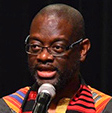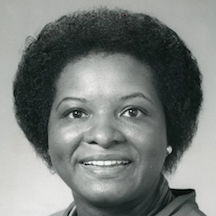 In 2020, Bram and Sandra Dijkstra agreed to donate their John Coltrane Memorial Black Music Archive to San Diego State University. Abraham “Bram” Dijkstra, a distinguished cultural historian and the University of California San Diego professor emeritus of American and comparative literature, and Sandra Dijkstra, a literary agent, are alumni of the university.
In 2020, Bram and Sandra Dijkstra agreed to donate their John Coltrane Memorial Black Music Archive to San Diego State University. Abraham “Bram” Dijkstra, a distinguished cultural historian and the University of California San Diego professor emeritus of American and comparative literature, and Sandra Dijkstra, a literary agent, are alumni of the university.
The archive contains nearly 50,000 rare jazz, blues, gospel, reggae, soul and rhythm-and-blues albums that were primarily recorded by Black musicians. The archive represents nearly 65 years of collection and curation efforts, consists of thousands of vinyl recordings and CDs of some of the most well-known jazz musicians spanning the early 1920s through the start of the 21st century. Notably included in the collection, and carrying its namesake, is nearly every known recording of the late and iconic jazz musician John Coltrane.
The university claims that the Dijkstras later made requests about the handling of the collection that would incur costs to the university. The university asked the donors for $500,000 to cover the costs of these requests. A statement from the university’s president’s office explained that “such an occurrence is uncommon, and most nonprofit organizations, including universities, do not accept gifts that incur significant costs.” The university has now backed out of the agreement to accept the archive.
 Adisa Alkebulan, chair of the department of Africana studies at San Diego State University has presented a resolution to the University Senate that says that “the decision to do away with this world-class resource and all its possibilities for furthering diversity, equity, and inclusion initiatives and scholarly pursuits was made in secret by administrators and (fundraising executives), without any faculty consultation, casting the darkest shadow upon SDSU’s claim to ‘equity and inclusion in everything we do.’”
Adisa Alkebulan, chair of the department of Africana studies at San Diego State University has presented a resolution to the University Senate that says that “the decision to do away with this world-class resource and all its possibilities for furthering diversity, equity, and inclusion initiatives and scholarly pursuits was made in secret by administrators and (fundraising executives), without any faculty consultation, casting the darkest shadow upon SDSU’s claim to ‘equity and inclusion in everything we do.’”
A native of Cleveland, Ohio, Dr. Alkebulan earned a bachelor’s degree in Pan-African studies from Kent State University in Ohio and a master’s degree and Ph.D. from Temple University in Philadelphia.









The question that needs to be asked in why in hell is the priceless work of native born Black American artists being housed at racist San Diego State University? In fact, the works of John Coltrane should be stored at one of the amazing HBCUs in the state on North Carolina where Coltrane was born. SDSU have the Chutzpah to say they need funds in spite of the fact they have a budget of $1.03 Billion FY 21/22. I am most certain if this was some Jewish archival material SDSU would find the funds to maintain such a collection. Once again, the racist upper level administrators (i.e., non-native born Black American) have clearly showed how much they value true diversity. Somebody need to find out how Dr. J. Luke Wood feel about this recent decision.